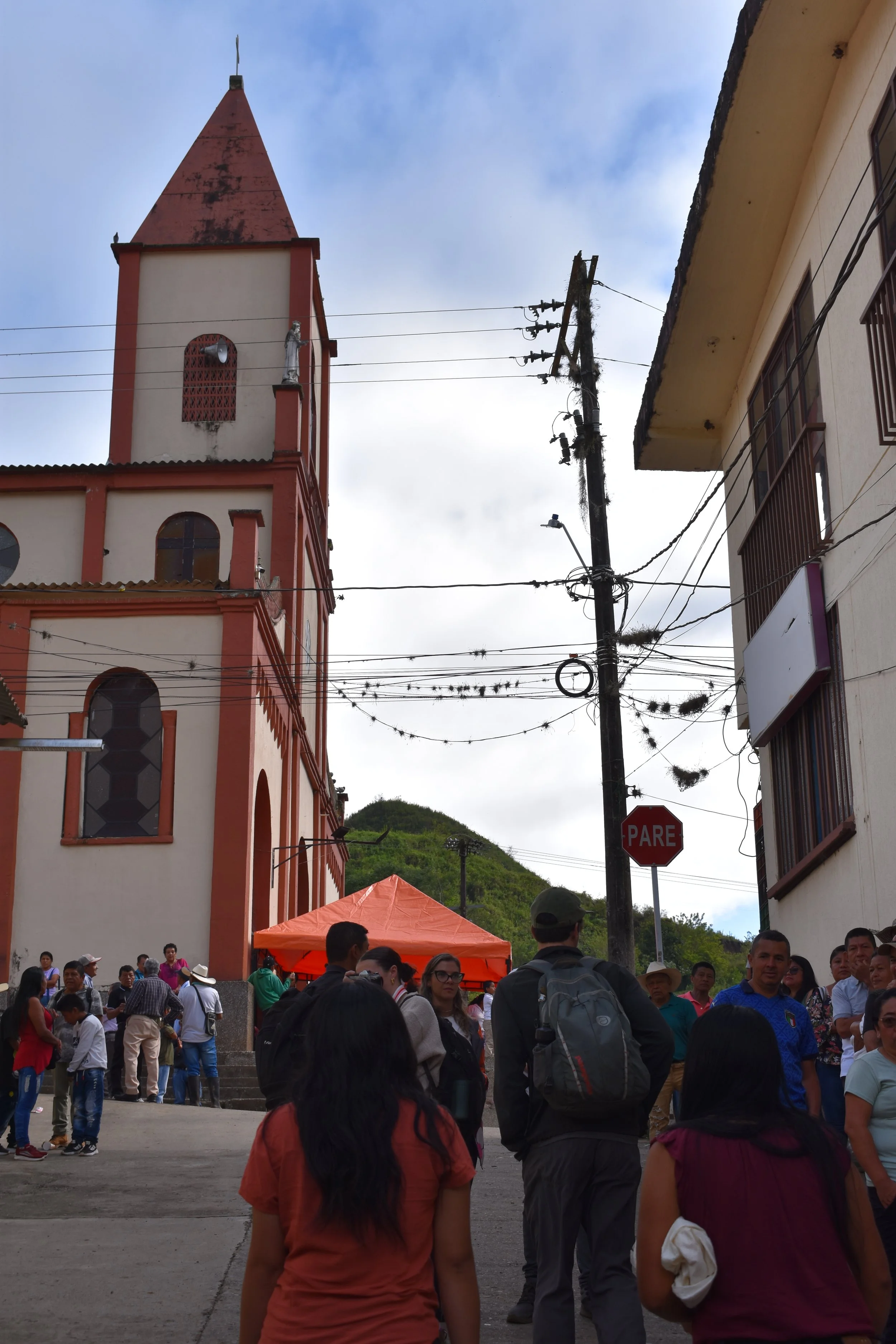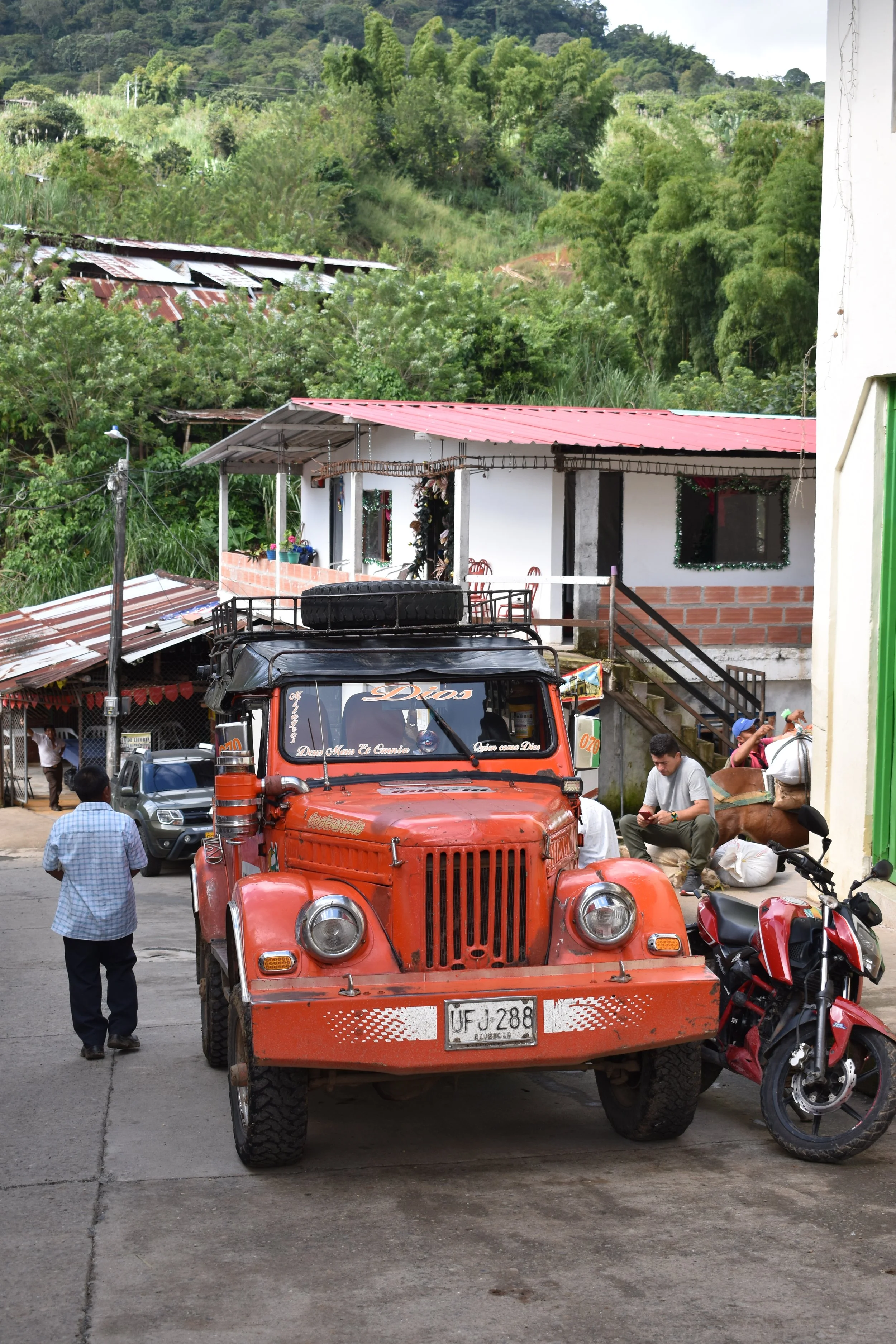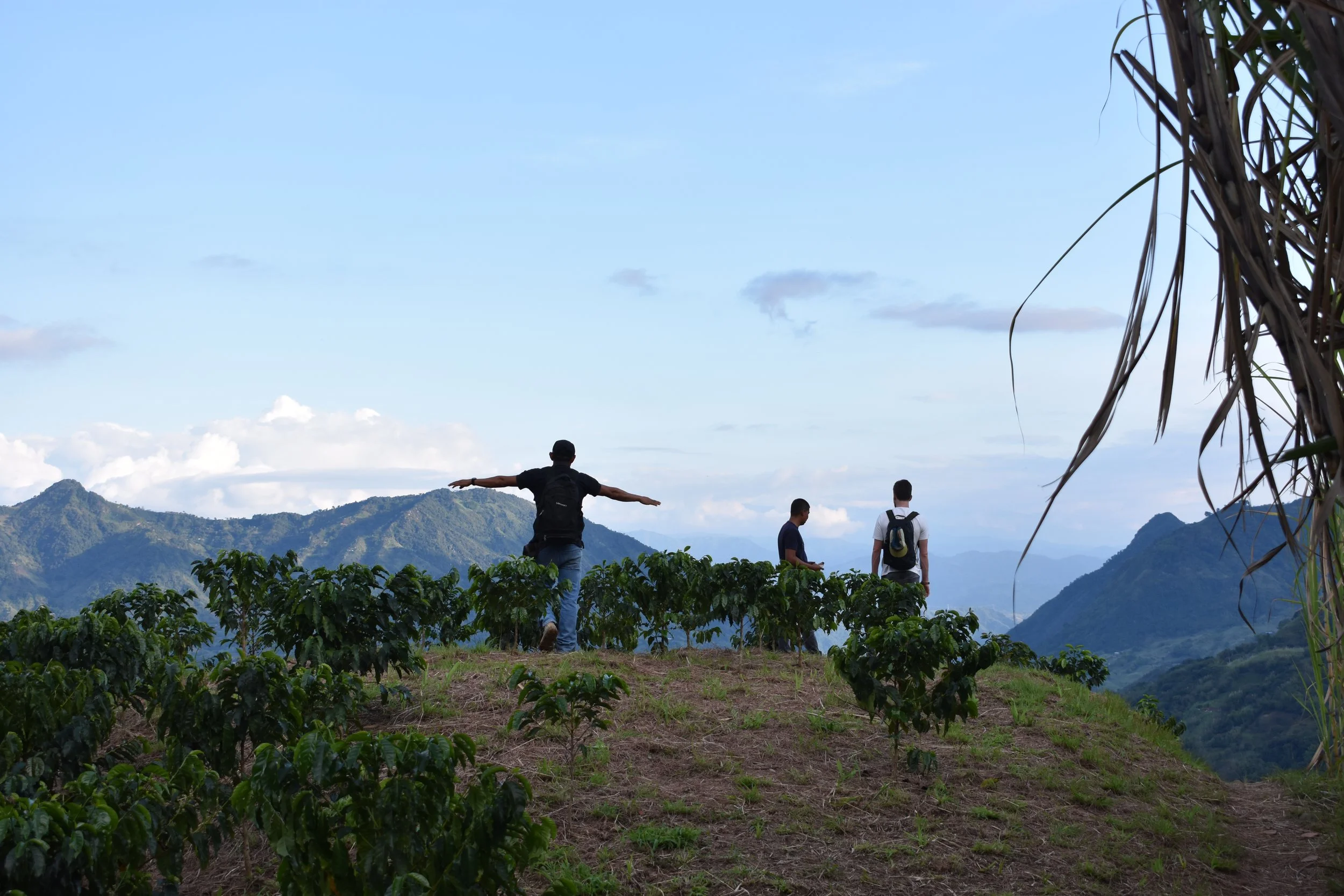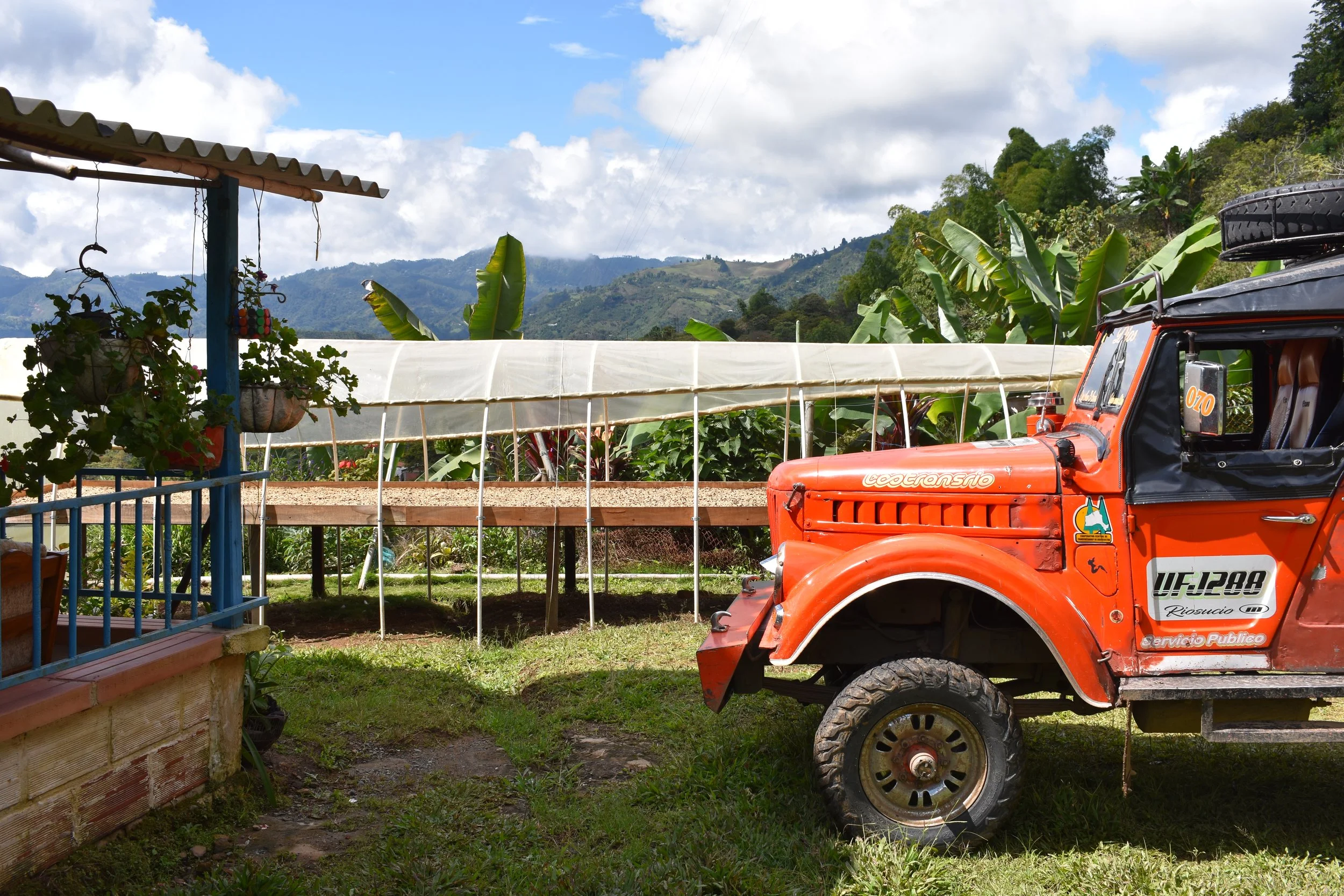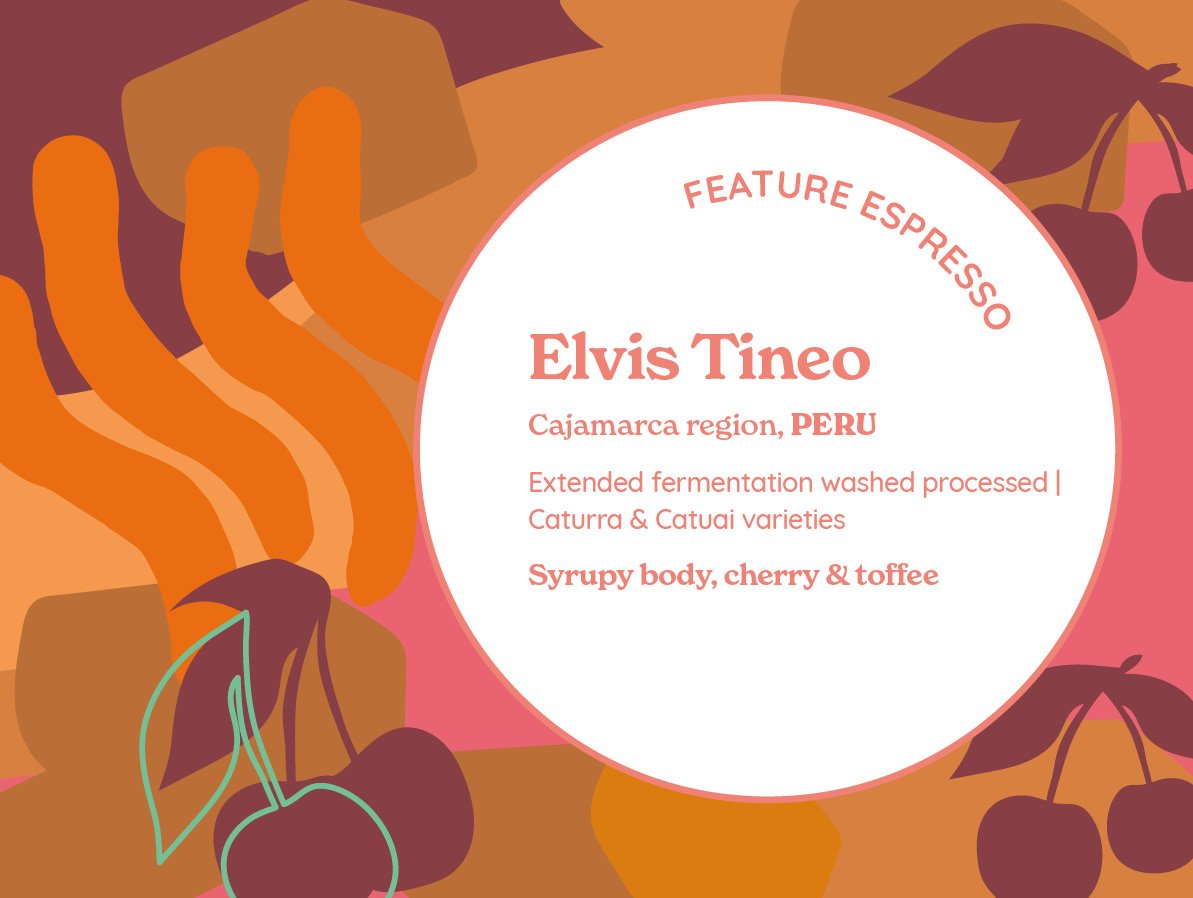HOUSE ESPRESSO | San Lorenzo | Colombia
HOUSE ESPRESSO | San Lorenzo | Colombia
For best results we would always recommend purchasing whole bean and grinding fresh before brewing. If you don't have a grinder, we can grind according to your preferred brewing method just before shipping.
Great for espresso machines, mocha pots (stove-tops), Aeropress & cafetière. Delicious on its own and with milk.
SHIPPING & DISPATCH:
E-commerce orders are shipped Mon - Fri via Tracked48 Royal Mail service (£3.50 or free for orders above £20).
Delivery upgrade to DHL Express is available at checkout. (Free for order above £50)
Same day dispatch cut off is 12pm.
Producer: Small growers of San Lorenzo group
Region: Caldas, Colombia
Altitude: Around 1700 masl
Varietal: Colombia, Caturra & Castillo
Process: Fully washed
Exporter: Siruma Coffee | Importer: Falcon Speciality
Cup profile: Syrupy body, dark chocolate and plums
What’s our house espresso all about?
Our coffee offering is all about showcasing fresh in-season single-origin coffees of varied favour profiles while sharing stories of their origins and producers.
With our house espresso, we looked for a coffee with a full body, coating, syrupy mouthfeel, notes of chocolate, caramel and a mellow stone-fruit acidity. They will present plenty of sweetness and character to stand alone as an espresso or long black whilst pairing beautifully with milk for a silky comforting flat white.
To maintain a consistency of flavour throughout the year without compromising on the coffee’s quality and freshness we have chosen Colombia to be the origin for our house espresso. The country’s size, geographical position and hilly terrain with a variety of micro-climates provides perfect conditions for growing high-quality coffees; it also allows for harvesting multiple times throughout the year, meaning that we can receive fresh shipments throughout the year.
How is it sourced?
We source all our Colombian offering with the help of our importing partner Falcon Speciality, who work closely with local exporters and cooperatives on the ground in Colombia. We have chosen to source our house espresso coffee from one particular group of producers - San Lorenzo, based in the Caldas region, central Colombia.
Sourcing from one producer group enables us not only to understand the supply chain and be able to clearly communicate the coffee’s origin but also to establish and nurture a lasting partnership with the San Lorenzo growers’ group facilitated through Siruma - the exporting company in Colombia and Falcon - our importing partner in the UK. This way we can benefit from having a reliable and delicious coffee to offer all year round as our staple espresso and in turn we commit to purchasing from the same group on long term basis, providing a stable outlet for their coffee that purchased at sustainable prices.
About San Lorenzo producer group:
The San Lorenzo group is part of the Cooperativa de Caficultores de Alto Occidente de Caldas which was established in 1964. It is an indigenous group of producers based in the Rio Sucio municipality of Caldas where there are 11,500 inhabitants with 1,150 farmers producing coffee within 21 communities.
Until recently, this region was heavily inhabited by paramilitary groups and guerrillas, who looked to control this central corridor in Colombia. The region has not been known for specialty coffee production but as the local tensions have eased and access improved, it is now possible to showcase the great quality of the coffees available from this area.
The indigenous inhabitants believe in the Pacha Mama – earth goddess, and see the land as a living being. To them it is their duty to protect the natural environment and have as little impact as possible from their farming of coffee and to leave it as it has always been.
Each farmer has approximately 0.5 hectares of land with about 2500 coffee trees. During the harvest season, families work with their neighbours to select ripe cherry before de-pulping and fermenting the coffee in water for 16 -24 hours, depending on the weather. The coffee is then washed and put out to dry on small drying patios, usually on the roofs of houses, for between 8 – 14 days. Then it is delivered to the cooperative where it is assessed and allowed to rest before being milled and prepared for shipment.






